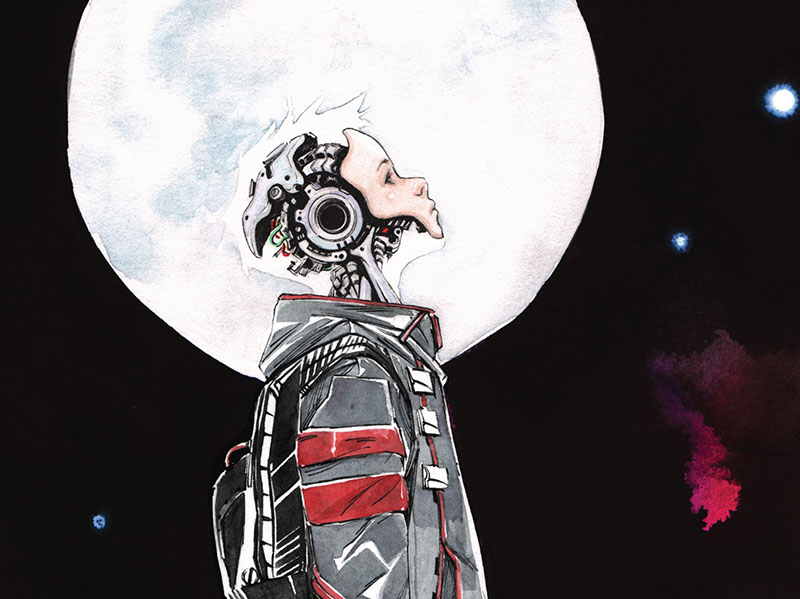Descender: Personhood Decompiled

What makes us who we are? Is who we are written into our DNA? Is each of us just a convoluted reflection of the people you encounter throughout life? These are questions that fascinate me. And this dilemma is the main thing that I find so compelling about Descender.
The comic is a bout a child-model robot, named Tim-21, who re-activates in an abandoned human mining colony after having been turned off ten years prior. He had a family when he went to “sleep” but he has no idea what happened to them. So he sets off on a quest to find out what happened to the boy who called him “brother” all those years ago. A boy who has probably grown up in the intervening years if he even survived at all.
Descender isn’t about people, ostensibly. It’s about what happens when robots become sufficiently advanced enough to start developing their own wants and desires. When being subject to a mankind that still views them as objects and does not consider those wants an desires aren’t relevant to their function.
Consequently, this comic is about race and gender and being different but having those differences ignored without specifically being about any of those things. It’s a tale that takes on Orwellian themes, but I’d argue that Lemire handles them without the typical Orwellian heavy-handedness.
And like all the best classic science fiction with robots in it, Descender asks the question: “How different is human intelligence from artificial intelligence. Isn’t it all basically just software?” And I think that the human implications of engaging with those sorts of a questions is an enriching experience for both humans and robots.



